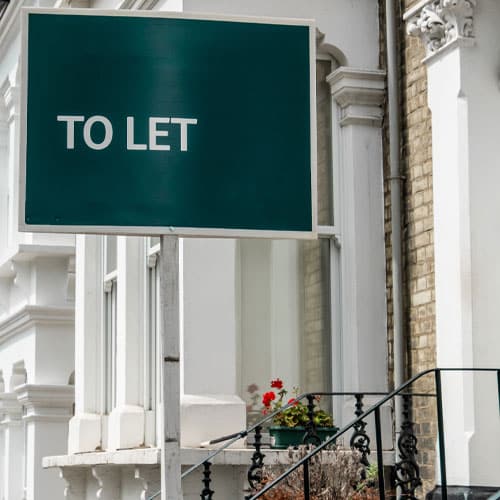
Let Property Insurance
Compare Let Property Insurance Quotes
- Complete one short form
- Quickly compare quotes
- Find a great deal today!

Compare let property insurance quotes from UK’s leading landlord insurers including:
Why Compare Cheap Let Property Insurance Quotes With SimplyQuote
Renting a property can be challenging as your property is at the mercy of your tenants. Finding cheaper let property insurance shouldn’t be stressful, overwhelming and time-consuming.
That’s why SimplyQuote’s free, online comparison tool is designed to do the heavy lifting for you; streamlining the process in a couple of clicks. Easily compare multiple insurance quotes from top-class UK insurance providers to find the best landlord insurance deal.
Comparing this kind of specialist landlord insurance has never been easier. Choose SimplyQuote today!
What Do You Need To Get A Quote?
Please provide the following information and we’ll provide an extensive list of landlord insurance cover options:
- Personal details – name, surname, contact details
- Rental property details (e.g. residential or commercial property, what materials is it made from, condition and age of the building)
- Tenant details – who do you rent the property to? (students, professionals or businesses), tenant agreement, the rent you charge
- Insurance policy details – which cover are you interested in? (Buildings insurance, contents insurance, etc.)
- Payment details – annual payment or monthly instalments?
- Claims history
Why Do You Need Let Property Insurance ?
The reality is, that you don’t need landlord insurance as it isn’t a legal requirement in the UK.
However, you need landlord insurance cover if you want to protect your property against unforeseen events like fire, flood damage, subsidence or damage caused by your tenants.
Additionally, rental property owners with a buy-to-let mortgage generally need buy-to-let insurance as stipulated by the lender.
Let property insurance is a bundle of smaller cover plans that protect you from liabilities on your rental property – like a package of sorts.
Essentially, if you want to protect your property against damages and legal disputes, you’re safest option is to invest in let property insurance.
To avoid confusion, let property insurance is also known as:
- Buy-to-let insurance
- Property rental insurance
- Rental house insurance
- Landlord insurance cover
Note: Standard home insurance will not cover your rental property.

What Does Let Property Insurance Cover?
You can expect a reliable let insurance policy to include:
Landlord buildings insurance
Buildings insurance covers repair costs if your property suffers damage due to:
- Natural disasters
- Subsidence/heave
- Fires
- Theft/burglary
- Vandalism
The policy safeguards you from expenses to restore your building and any permanent fixtures, such as built-in kitchens, bathrooms or exterior lighting fittings caught in the crossfire.
Landlord contents insurance
Contents insurance protects any of your items within the rental property, such as:
- Soft furnishings – curtains, carpets, etc.
- Furniture – tables, beds, sofas, shelves
- Kitchen equipment – crockery, cutlery, glassware
- Outdoor items – outdoor seating, barbeques, decking, hot tubs
- Electronics – TVs, stereos
There’s no legal requirement to cover the cost of your tenants’ belongings. Their insurance policies will have to handle those losses.
Rent guarantee insurance
As the name suggests, this plan accounts for instances where your tenants stop paying rent or fall short of their regular retainer. Rent guarantee insurance is also called tenant default insurance. There are a few policy add-ons you can add to your landlord insurance policy, such as rental income protection and loss of rental income cover – which we’ll touch more on in a minute.
Legal expenses
Legal expenses insurance covers legal fees should you find yourself in a legal dispute – either with tenants or third-party persons.
Renting your property is a serious business, and payment issues often push landlords to take their occupants to court. However, that doesn’t make the process any less expensive.
Alternative accommodation
Alternative accommodation helps property owners pay to place their tenants in temporary rehousing during insured events. For example, you may need to relocate your occupants while your plumber repairs a leaking pipe that’s flooding the building.
Accidental damage cover
Accidental damage compensates landlords for unexpected repairs made to their property or insured belongings. Damaged walls, stained rugs, and structural mishaps from DIY projects all warrant unintentional incidents.
Landlord liability insurance
Liability cover will reimburse your litigation costs, hospital bills or compensation costs associated with an accident occurring at your rental properties.
Property owners’ liability is convenient for landlords who end up in specific high-expense legal issues with their renters. If a tenant or visitor suffers injuries or losses while on your property, they have the right to take you to court.
Unoccupied property cover
An unoccupied property policy is ideal for landlords who are:
- Still searching for tenants
- In-between renters
- Renting out to students who travel on holidays
- In the process of renovating the property
This policy covers landlords for periods when you’re not renting out your property. Unoccupied buildings are more vulnerable to theft and vandalism since offenders know there won’t be anyone inside to catch them. However, there is usually a timeframe limit tied to this kind of cover, normally between 60 and 90 days.
Note: Some of these policies may not be standard and can vary between insurance providers. They might be available as optional add-ons to your policy. Do check these finer details with your insurance company.
Are there any exclusions on a landlord insurance policy?
Yes, there are a few instances where buy-to-let property insurance won’t cover you:
- Normal wear and tear due to poor maintenance upkeep (e.g. flaking paint, rusted handrails, etc.)
- Deliberate damage to the property (to claim the insurance payout)
- Pet damage
- Uninsured building structures/items not mentioned on the policy
- Tenants personal belongings
- Boiler cover
What Add-Ons Are Available For Let Property Insurance?
Much like your standard home insurance, landlords can cherry-pick optional extras to include on their policies, namely:
Rental income protection
This covers you when your rented property can’t be rented out. For instance, the property is undergoing repairs following an insured event (e.g. flooding or fire) and the building is temporarily inhabitable.
Loss of rent cover
This covers you when tenants can’t pay their rent as they have moved out unexpectedly (often due to an insured event).
Landlord emergency cover
This policy covers the cost of emergency services, such as plumbers to fix burst pipes or electricians during unexpected power outages.
Boiler cover
Some emergency cover policies may include boiler cover. If not, you can opt for a separate policy to cover boiler repairs or replacements on your property.
Note: This does not apply if annual boiler services are not done.
Deliberate damage cover
This add-on covers intentional or malicious damage by your tenants. It is different to accidental cover and you’ll need to provide evidence that the damage was intentional.
Employers liability insurance
This is a legal necessity if you employ staff at your rental properties, such as gardeners or cleaners. It protects landlords against employee claims should they injure themselves on duty.
Property owners’ liability protection
This liability cover protects you against any claims made against you from tenants, their guests or third-party persons (someone of the general public).
Let’s say your tenant’s friend comes over for a visit, trips and falls and decides to take you to court. Or the old lady from next door is walking her dog and tumbles over a wobbly step on your property and you’re whacked with a liability claim.
Key replacement cover
This policy comes in handy should you or your tenants lose their keys. It may also include locksmith services if keys are locked inside the property.
How Much Does Let Property Landlord Insurance Cost?
Basic let property insurance is around £170 per year – for buildings insurance only that is.
It’s worth mentioning, that pricing varies between different insurers and is based on several factors like the condition of your rented property, the policy add-ons you choose and your previous claims history.
How are let property insurance premiums calculated?
- Property type, age, condition, size and location
- Property rebuild value
- Number of properties you rent out – do you have more than one property?
- Risk level of your rental property – is it in a high-crime area or prone to flooding?
- Cover level – contents insurance, buildings insurance, or both
- Add-ons selected
- Nature of tenants – long-term or short-term
- Previous claims history
How Can You Get Cheaper Insurance Rates?
Here are our top ten tips to help you reduce your landlord insurance premiums for buy-to-let properties:
Compare landlord insurance quotes
Use SimplyQuote’s 100% free, online tool to effortlessly compare let property insurance quotes from leading UK insurers. Comparing quotes helps you find the best deal suited to your premise and budget.
Stay ahead of your property maintenance
Premature wear and tear can deteriorate the condition and bring down the value of your property, making it more expensive to insure.
Screen tenants
Carefully decide on the type of tenants you want to rent to. Students are statistically higher risk as they’ve been linked to more accidental (and deliberate) damage cases.
DSS tenants (private tenants who claim benefits) are also associated with higher premiums.
Say no to pets
Pet damage is generally not covered by your insurance policy, so it might be best to say no to pets. If you do allow pets at your rented property, understand you are liable for repair costs.
Prevent insured events
Safeguard your property as best as you can from insured events. This may include installing fire safety regulations for tenants to follow, fire doors and smoke alarms.
Don’t let your property stand empty
Unoccupied premises are more attractive to criminals, increasing the likelihood of break-ins, theft and vandalism.
Secure your rental premises
Security measures like alarm systems, CCTV cameras and security gates deter criminal activity, resulting in less chances of damage – and lower premiums.
Get accurate rebuild values
There’s nothing worse than under-insuring your property. Make sure you get two or three evaluation quotes to provide an average rebuild cost to your insurance provider.
Pay annually
Paying premiums annually mitigates the interest on monthly instalments.
Choose the cover you need
You should never skimp on your insurance cover but you also should never opt for policy add-ons you don’t need. It’s about striking the right balance between what works best for your rental premises and budget.
How To Compare Let Property Insurance Quotes With SimplyQuote?
Compare let property insurance quotes with SimplyQuote in four easy steps:
- Fill in the quick form with details about yourself, your rental premises and your UK location.
- Choose policy add-ons you want to include.
- Compare quotes with SimplyQuote’s user-friendly tool to find the best deal today!
- Save money on your rent insurance policy (almost) instantly!
Frequently Asked Questions
Let property insurance is a bundle of smaller coverage plans that protect you from liabilities on your rental property. Think of it as a package. Many issues could go wrong with your buy-to-let property and this kind of property insurance is the best to go for!
A landlord insurance plan is the most practical option for landlords with rental premises.
Generally speaking, landlord insurance applies to all property types, whether the rented property is residential or commercial. Here are a few examples:
- Flats/apartments
- Detached houses
- Terraced houses
- Bungalows
- Maisonettes
- Commercial properties
Note: Houses in multiple occupation (HMO) properties are generally covered with specialist landlord insurance, called HMO cover. You’re better off with a landlord portfolio insurance policy if you own and manage multiple properties.
In our opinion, yes. While many property owners feel they don’t need landlord insurance, regular home insurance won’t assist with accidental damage cover, rent cover, and other let-specific issues.
Use SimplyQuote’s free, online comparison tool to quickly compare landlord insurance quotes from leading UK insurance providers. Find the best deal in just a few clicks!
